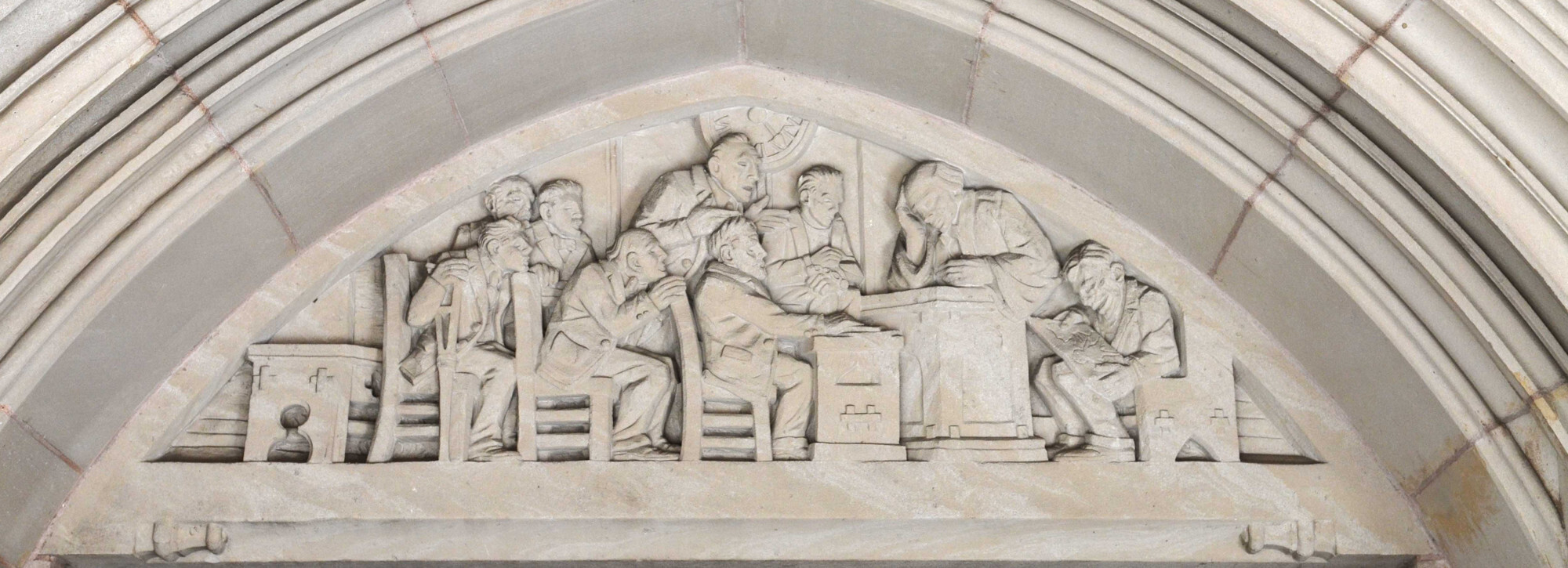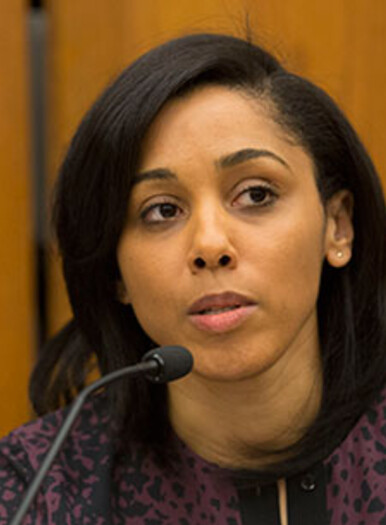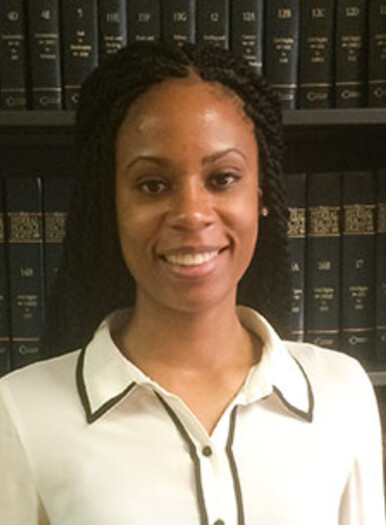The Liman Center funds fellowships for Yale Law School graduates to spend a year working in public interest law in the United States. In recent years, the Center has also hosted a small number of in-residence Fellows from YLS and other law schools. In-residence Fellows do a mix of research, teaching, and clinical work. As of 2024, the Liman Center has supported more than 190 fellowships for law graduates.
The Liman Center’s Law Fellowships fund a year at a nonprofit, public interest legal organization based in the United States. These fellowships are open to individuals who are or will be graduates of Yale Law School before the fellowship begins.
Fellows-in-Residence
These fellows spend one to two years at Yale Law School where they join the Center’s research and teaching projects. Graduates of law schools who have done work thereafter are eligible to apply. Individuals who have held other fellowships, including those sponsored by the Liman Center, are eligible.
Law Fellowships
Through Liman Law Fellowships, graduates of Yale Law School join host organizations around the country to work on a myriad of issues addressing the many needs for representation, research, and innovation. Fellows have worked, for example, on environmental conservation, economic and housing insecurity, workplace discrimination, tribal governance, immigration detention, criminal law enforcement, and more. Former Liman Fellows today serve as state and federal judges, in the academy as professors and administrators, in public and private organizations, and some have founded nonprofit organizations.
Fellows receive an annual stipend of approximately $55,000. Host organizations generally cover the cost of health insurance and other benefits and always provide malpractice insurance. In some cases, with substantial financial support from the host organization, Liman Fellows have the opportunity to extend their fellowships for part or all of a second year.
Fellows file a mid-term and a final report with the Liman Center and attend the annual spring Liman Colloquium at YLS. In addition, Liman Fellows work with the Center and with others through organized mentorship connections and subject-area projects, email lists, and an e-newsletter. Fellows become part of a network and are expected to continue to participate after the fellowship year ends.
Applications for 2025–2026 Liman Law Fellowships will be accepted online via the YLS Public Interest Fellowship Common Application1 from January 3 to February 3, 2025. Before submitting application materials, applicants are expected to speak with Liman Center Executive Director Kate Braner and consult with former fellows.
Fellowships-in-Residence
Liman Center Fellowships-in-Residence are open to experienced law school graduates. In-residence Fellows contribute to the Center by helping to shape its research and programs and supervise students. Liman Center academic offerings include Liman Projects: Research for Reform, an experiential course that uses a variety of methods to inform significant changes in the law. In addition, each spring, the Liman Workshop is a two-hour seminar for law students. Topics vary—for example, in 2023, the workshop is Imprisoned: Construction, Abolition, Alternatives. Past workshops have included Rationing Access to Justice in Democracies: Fines, Fees, and Bail and Racial Justice and Immigrants' Rights: Debates and Dialogues. These fellowships generally begin in August before the start of the academic year. Compensation includes full benefits and a salary commensurate with experience.
In addition, such Fellows often work collaboratively with Yale Law School's clinical program, other parts of the University, and entities such as public defenders and community organizations in Connecticut. The Curtis-Liman Fellowship—established in 2020 to honor Professor Dennis Curtis, a co-founder of Yale Law School’s clinical program — enables a law school graduate to spend one or two years working on innovative criminal law, immigration, or other advocacy.
Current and former Fellows-in-Residence have worked on prosecutorial misconduct, prison systems’ responses to COVID, the fiscal impact of the legal system, and alternatives to sentencing in conjunction with the Federal Defender’s Office in the District of Connecticut. See below for a summary of the work of current and former Fellows-in-Residence.
Applications for Fellowships-in-Residence are welcome as of the fall of 2024. Please apply no later than February 3, 2025. Applicants are expected to discuss their projects with Liman Center Executive Director Kate Braner and reach out to former Fellows for advice before submitting an application. The Center has samples from past fellowship proposals. Visit the Apply2 page on the Liman Center website for details about application requirements and the submission process.
Curtis-Liman Fellowship
The Curtis-Liman Fellowship — established in 2020 to honor Professor Dennis Curtis, a co-founder of Yale Law School’s clinical program — enables a law school graduate to spend one or two years working on innovative criminal law, immigration, or other advocacy. Since Fall 2022, the Curtis-Liman Fellow has focused on alternatives to incarceration and the impact of fines, fees, and other costs associated with criminal law enforcement. The Fellowship is co-hosted by the Federal Defender Office (FDO) of Connecticut, the Jerome N. Frank Legal Services Organization (LSO), and the Arthur Liman Center for Public Interest Law (Liman Center), and involves a mix of client representation, clinical supervision, and directed research.
The Curtis-Liman Fellow is supervised by attorneys at the FDO, and legal faculty at the LSO and at the Liman Center. At the FDO, the Fellow is assigned a specialized caseload, with a focus on individuals subjected to supervision after conviction. This assignment aims to support clients returning from incarceration, identify the costs associated with post-release supervision, and challenge when needed, any conditions of community release that impose undue burdens or present obstacles to living and working in the community. During the spring semester, the Fellow helps supervise cases in collaboration with the LSO, co-teaches the Liman Workshop seminar, and works with a team of students enrolled in the Liman Center’s directed research class. See below for a summary of the work of current and former Curtis-Liman Fellows.
See this announcement for more information about the 2025-2026 Curtis-Liman Fellowship. Interested applicants must first contact FDO with application materials by October 1, 2024. Individuals seeking to apply should email a cover letter, a resume, a writing sample that demonstrates research skills, a list of references, and a law school transcript to Carly Levenson (carly_levenson@fd.org) and Kelly Barrett (Kelly_barrett@fd.org). Once FDO has agreed to serve as a host organization, sponsored individuals will be informed how to submit applications for the 2025-2026 Curtis-Liman Fellowship to the Liman Center. The Liman Center will accept applications thereafter; the application closes on February 3, 2025 and applicants are encouraged to contact Liman Executive Director Kate Braner (katherine.braner@yale.edu) before submitting materials.



